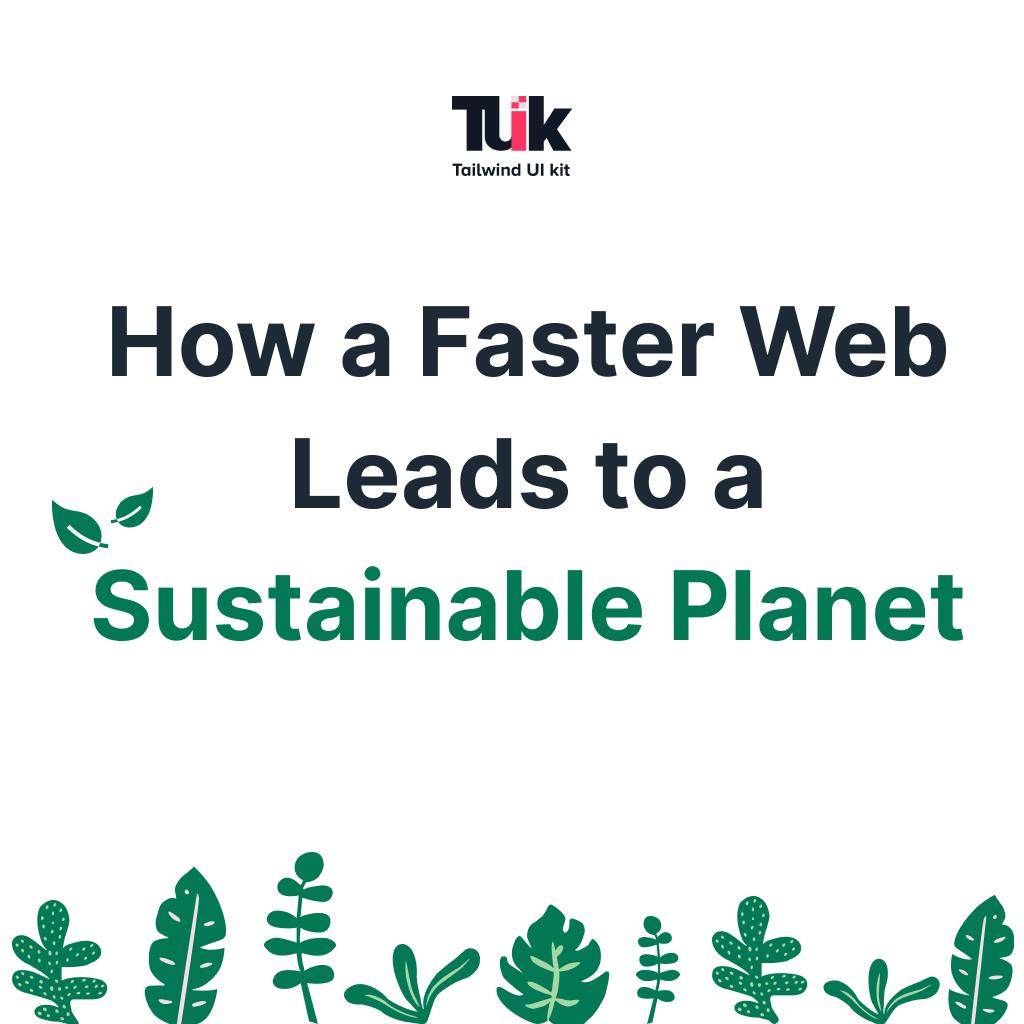Others
23 June 2021
A Faster Web can Lead to Sustainability of our Planet

According to Mike Hazas, a researcher at Lancaster University, internet usage contributes towards global greenhouse gas emissions, approximately 3.7%. This is the same amount of greenhouse gas emissions that the entire aviation industry produces, and it is estimated that by 2025 this will double. This is due to carbon emissions that are produced due to generation of electricity that is needed to power the energy intensive infrastructures on which the web relies upon, like data warehouses, servers, WiFi, user displays, and terminals. Before a user can view their required data, the data has to go through an entire chain of electrical equipment. As an example, sending a simple email contributes to around 4g of carbon emissions and sending an email with some form of multimedia content like a video or even a simple picture can produce up to 50g of carbon emissions. Once these carbon emissions reach the atmosphere they cause an effect called the greenhouse effect which contributes to the depletion of the ozone layer which causes global warming, which further leads to climate change. A List Apart estimates that as web makers, our contribution towards the carbon footprint is around 40%, be that directly or indirectly and as a part of our planet it is our duty to help our planet survive especially when our work has a considerable contribution towards global warming.

How can Faster Webs Help?
Faster websites require less time to load and are smaller in size. In order to make faster websites we need to make the website lighter, and one way of doing so is to reduce the size of a website. By removing non essential details and focusing on a minimalistic design, we can reduce the size of a website. Doing so will inevitably reduce the amount of carbon emissions produced by reducing the amount of data needed to be transferred between servers and ultimately reduce the need for more energy for doing so. According to a report by HTTP Archives, In 2021 the average weight of a webpage on a desktop is 2123.6KB and the average weight of a webpage on a mobile is 1917.5KB. Comparing this to 2017 there is a huge difference. In 2017 the average weight of a desktop webpage was 1479.6KB and that of a mobile webpage was 1334.3KB. This means that today's websites are a lot heavier and hence require more energy to load.
Size Matters:
Trust us, when it comes to website pages, size matters. In order for a website to be faster it’s not necessary that it only has less multimedia content to have a lighter weight, it can have better organized code.

A website with organized code is lighter and contributes to the sustainability of our planet in the sense that it takes less time to test it, which means that the time a developer would spend on a computer coding and then testing the website would reduce, which would reduce the amount of energy consumed, hence reducing carbon emissions. Another way you can reduce the size of a website and make it load faster is to make your website accessible. Accessible websites are designed in a way to help users with disabilities access all the information on the web easily. Accessibility provides users with less distractions and focuses more on the content, hence reducing the need for unnecessary bits of data like multimedia content ultimately reducing the need for more data transfer.

Apart from the reason that a faster web ultimately helps our planet survive, providing a faster website that has a faster loading time is also important from a user perspective because according to data from Pingdom, if a website takes more than 4 seconds to load then 24% of the users will abandon it and if it takes more than 5 seconds to load the 38% of the users would abandon it. So in order to ensure that you retain as many users as you can, you need to make sure that your website loads faster and one way of doing so is to reduce the size of your website.
Conclusion:
Even though reducing the size of a website or making them faster or providing accessibility won’t save the planet. However, every small contribution when added together can humbly contribute towards this planet’s sustainability. It’s not about the intensity of our help but our mindset. If we think that websites don’t contribute much to carbon emissions then a time will come that they do and when that happens it will be too late so it’s our responsibility as inhabitants of this planet to take care of it and help it in any way possible, be it in the slightest contribution. It all starts with the first step, it all starts with you, be responsible.

